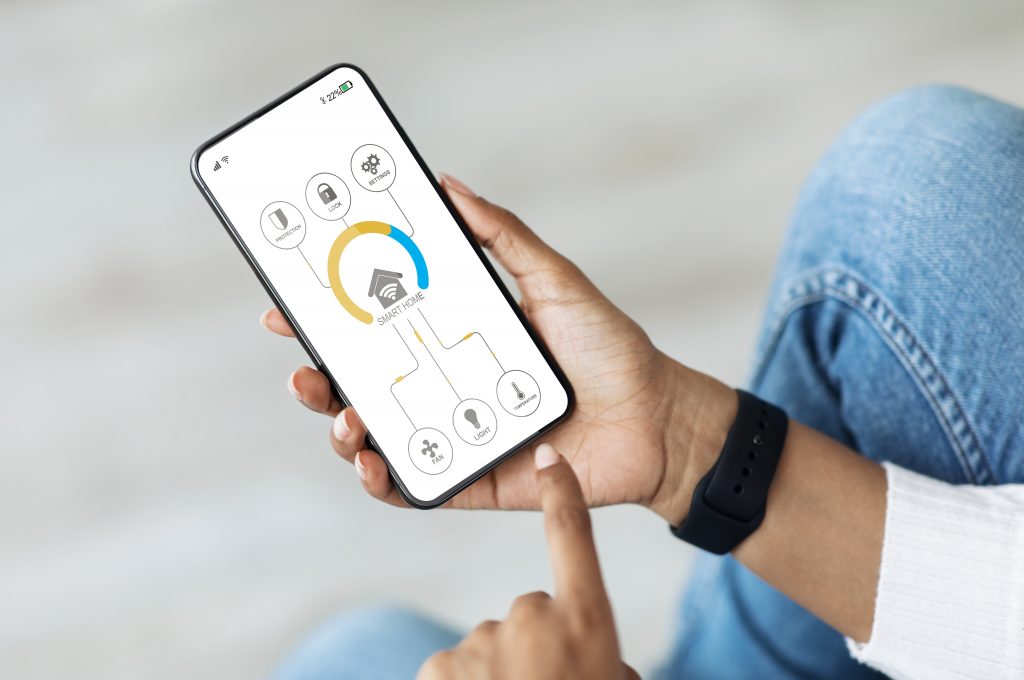From a quick blood-alcohol test to business and games, Nashvillians get creative
The middle of a DUI test seems an unlikely time and place to come up with the next great smartphone app. But inspiration struck Clay Bradley as his eyes followed the light the officer moved slowly from side to side.
“While I am doing the pen test I am thinking about all sorts of different things, one that you could probably do this with the new capabilities of a smart phone,” Bradley says.
His idea would utilize the iPhone’s camera to scan the eyes to determine the “horizontal gaze nystagmus,” which is the involuntary jerking of one’s eyes when intoxicated and one of three methods used during a field sobriety test.
“It takes a series of photographs to detect and analyze HGN, then estimates the user’s blood alcohol content.”
He thought about if for more than a year before mentioning it to an old friend from the Monteagle Sunday School Assembly, Russell Ries.
“This was really appealing to me because I am a recovering alcoholic,” says Ries, adding he has been sober since March 26, 2008. “I know firsthand that any little bit of information you can put in front of somebody’s face to help them make smarter decisions, especially people who have a tendency to abuse alcohol, can help.
“We are not saying this application is a silver bullet and is going to stop drunk driving, but we do feel it can be a part of the process.”
Ries, along with Bradley, approached a friend of his from University School of Nashville, Robert Andrews, and it wasn’t long before he was on board with BreathalEyes.
“It sounded like a great idea, so I invested in some research and development,” Andrews says. “Then we eventually all decided to become partners, and I invested some more money into it, and now we have all sort of coalesced into a true partnership.”
They launched the app on Nov. 21 in the iTunes App Store for 99 cents. Unlike other “breathalyzer” apps, Bradley’s idea uses technology that is backed by science. Once downloaded, BreathalEyes scans the eye to detect and analyze HGN to determine the user’s blood alcohol content with an effective range between .02-.17 percent.
“At no point will the app say, ‘Yes you can drive, no you shouldn’t drive,’” Ries says. “We feel ultimately that decision falls on the person. But if we can give them something to help them make a smarter decision, that is what we want to try and do.”
A first offense DUI in Tennessee can bring up to a $1,500 fine, up to a year in jail, the loss of license, mandatory AA classes and about $3,000 in legal fees. Not to mention bail, court costs, fines and loss of work time.
Of course, not every app has the potential to save you thousands in legal fees and untold physical damage. It has been more than a year since David Corrigan started a small game development company, Digital Hero Games, and released his first app for the iPhone. He just released his second, a Christmas-themed game called Xmas Blox.
“I started the company in 2009 specifically to make iPhone games,” he says, adding he has been interested in game development since graduating Smyrna High School. But that wasn’t a realistic goal for the average person until the iPhone was released.
“Game systems then were all closed development stuff,” he says. “You would have to have a company and $400,000 worth of development equipment. And a company like Sega would then have to license you to develop for them, so it was a big process. And the only time that changed was with the iPhone.”
Corrigan had graduated from Lipscomb University and had been doing health care related software and Microsoft development when he bought his first iPhone and got serious about designing a game. He went to a few game-developer conferences, learning about promotion.
“I got to meet a lot of good people there, guys doing game development who steered me in a better direction,” he says.
But not every app is destined to make money. In fact, the odds are against it. Nicholas Holland owns the interactive agency Centresource, which creates many internal mobile applications for clients like SESAC, the performing rights organization, and Singer Sewing Company.
“If you want to do something online, you need to build it, brand it and boost it,” he says. “You need to figure out who actually wants it. So many people come to us to make an app and sell it in the App Store because they think they are going to get rich. But it is well below 30 percent of people who put apps in the App Store who ever really recoup their costs.”
Instead of commercial apps, Holland and his crew focus on helping their existing clients empower their business and customer experience through apps. For example, the SESAC app is a complex mobile transformation of the organization’s existing website. Holland, an MLK Academic Magnet graduate, has built his company in Germantown to more than 30 employees since 2005, and grew 30 percent last year.
“A firm like ours is the engine behind a lot of other firms in that we are taking their applications and things they have already done and turning those into mobile experiences.”
Eliza Brock does similar work, but on a smaller scale. The Hume-Fogg Academic Magnet grad is a software engineer who specializes in creating web and mobile applications for startups. She puts focus on the collaboration, keeping the client fully educated and informed.
“I spend a lot of time in my business figuring out what their dream application is and then scaling it down,” she says. “That is what I have optimized my business for: I make web applications on fairly small budgets in under a month, because as soon as you launch it you are going to need three new features. It makes it much more likely that you are going to succeed.”
Maintenance of an app is actually critical to its success. In 2006, Kevin Ross founded Metova, a Franklin-based software company that develops custom mobile applications for all platforms for more than 100 clients like Dropbox, Associate Press and Yelp. He sees apps languishing in the app store as diminishing to the good that is out there.
“Apple has something like 500,000 apps in their App Store, and that is not a good idea,” he says. “I would rather see 1,000 apps because they would be so much better. You see a slew of applications that get into the market and they are never updated because they couldn’t make a go of it.
“It certainly takes some forethought and planning to make sure you can monetize the app in a way that consumers expect and it has a business model that works for maintenance in the future, because software is not like a printed book. It is a living thing, and as new devices come on the market, especially new operating systems with the speed they are moving, it has to have some maintenance on a fairly regular basis.”
Monetizing an app that consumers, perhaps unrealistically, expect to be free is the hardest part of the mobile market.
“From an app maker perspective, that is difficult to deal with,” he says. “That puts some different challenges and constraints on business models, something we try to help our customers with. With the expectation that an app be free, it can be a real challenge to try market an app and make any money.”
Nashville-based Sitemason has been in the software business for years, including the production of apps. But it is something they are already thinking about moving away from.
The company began as Telalink, Nashville’s first locally-owned Internet service provider, and was sold in 1999, the proceeds used to start Sitemason.
“We have learned a lot about app development in the past two years and, rather than continue building them, we are probably going to partner with good developers who will find our platform as an appealing foundation for their client’s ongoing app content management,” says Thomas Conner, Sitemason’s president. “It is remarkable how much the app development business is unfolding in the same way that the website development business unfolded in 1995.”
Which only means more and more companies and individuals will try to capitalize on that trend, if only as a part of the overall growth strategy.
“Apps are going to be a component, but we are not solely basing our success on apps,” says Marty Reed, a Brentwood High graduate and owner of Randa Solutions, which creates education-related technologies and tools.
The fact that apps are so accessible, Reed says, will help boost their appeal.
“The solutions you pay $3 for on a mobile device typically are a $150 solution in any other scenario,” Reed says. “So apps are changing the way we are buying software. And at the end of the day, people have not been able to touch software and interact with it. With the augmented reality stuff, there is so much opportunity there.”
By Hollie Deese, Freelance Journalist
This article originally appeared in The Nashville Ledger.



